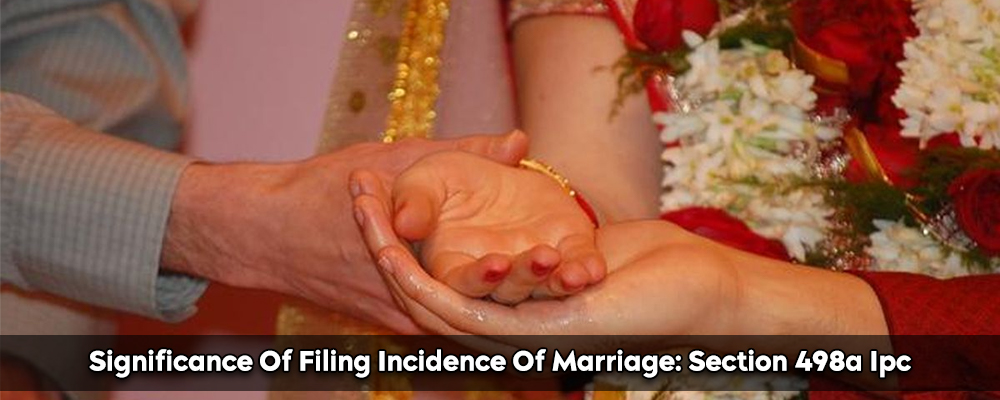Significant improvements have been made to the legal environment pertaining to divorce and marital conflicts over the years. The ability of women to initiate cruelty cases under Section 498A of the Indian Penal Code (IPC) is a critical part of this evolution. It is crucial to realize that this clause only applies to occurrences that happened during the marriage, not ones that happened after divorce.
Purpose of Section 498A IPC
- A legal weapon created to handle harassment related to dowries and other forms of cruelty is Section 498A IPC, which was created for the protection of married women from cruelty and harassment. The clause makes it illegal for spouses or their families to treat a married woman cruelly.
- With the goal of reducing the pervasive threat of dowry-related violence and harassment against women in weddings, Section 498A of the IPC was incorporated into the law code. In order to protect married women’s rights and dignity, the clause gives them the ability to file legal complaints when they are victims of abuse or harassment.
Need A Legal Advice
The internet is not a lawyer and neither are you. Talk to a real lawyer about your legal issue

Significance of Filing: Incidence of Marriage Post-Divorce
- While Section 498A of the IPC is an essential instrument for protecting women from abuse while they are married, occurrences that take place after the marriage has ended are not covered by this law. This implies that women are not permitted to bring claims under this clause for alleged cruel acts carried out by their ex-spouses or in-laws once the marriage has been declared null and void.
- The core idea that this provision was passed into law to address the unique difficulties encountered by married women in the setting of a marital relationship serves as the legal justification for restricting the scope of Section 498A IPC to occurrences that occurred during the marriage. The dynamics and legal obligations alter after divorce, and situations of cruelty that occurred during the marriage are different from those that appear after separation.
Role of Judiciary: Gujarat High Court
- In the case of Rameshbhai Danjibhai Solanki v. State of Gujarat, the recent Gujarat High Court decision has given the use of Section 498A IPC a new perspective. The court made it clear that although women might bring claims under this clause after a divorce, the alleged incidents must have happened during the marriage.
- This decision underlines the court’s goal of ensuring that the legal system takes into account the particular difficulties that married women confront in the context of their marriages.
- This decision achieves a compromise between fairness and comprehensibility of the law. The court recognizes that the effects of cruelty experienced during the marriage can last beyond its breakup by permitting post-divorce proceedings under Section 498A IPC for occurrences during the marriage. This decision, however, also protects against potential abuse of the clause for events that happened after divorce, which may involve very different circumstances.
Way Forward
- Even while the judgment defines whether Section 498A of the IPC is applicable, it is equally crucial to address the difficulties experienced by women who endure cruelty after divorce. This necessitates the identification and creation of suitable legal frameworks to address harsh acts that occur after a divorce. When confronted with harassment or abuse after a marriage has been declared legally null and void, women should have alternate channels for pursuing justice within the legal system.
- The decision of the Gujarat High Court demonstrates how legal interpretations are evolving to reflect how the dynamics of marriage and divorce are changing. It underlines the idea that cruelty experienced during a marriage can have long-lasting impacts on people’s lives, even after divorce. The legal system must change along with society in order to protect victims and make justice available.
Conclusion
A key legal tool for defending married women’s rights from abuse and harassment in the context of their marital relationships is Section 498A of the IPC. It does not address situations that developed after the divorce; it only relates to incidents that occurred during the marriage. The judicial system must adapt and provide alternate processes to address incidents of cruelty or harassment that may arise after a divorce. The legal system can ensure that the rights of women and their dignity are preserved even after they leave the union by doing this.
One can talk to lawyers at Lead India for any type of legal assistance. In India, free legal advice online is available at Lead India. Along with obtaining free legal advice online, you can also ask questions to the experts online for free at Lead India.





 Talk to a Lawyer
Talk to a Lawyer